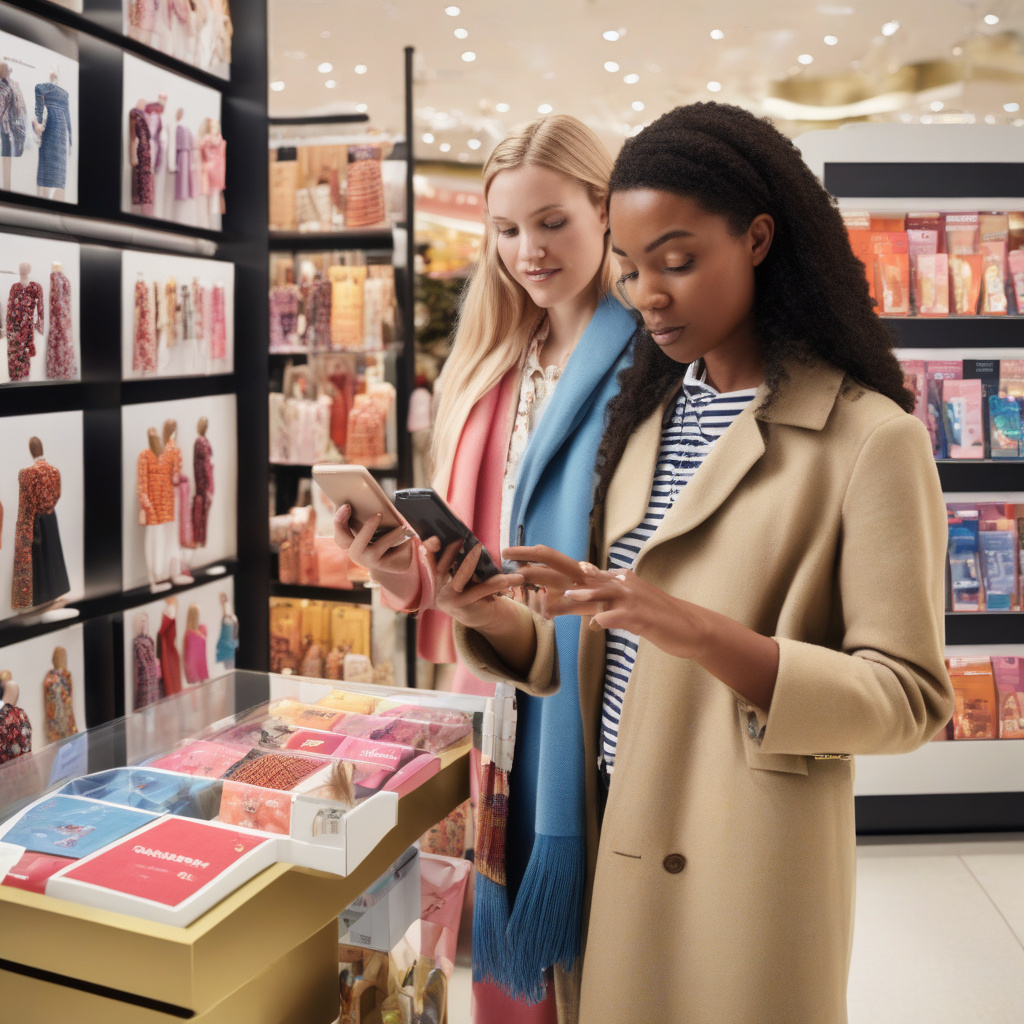Connected Experiences: The Future of Shopping for UK Consumers
In today’s digital age, technology is revolutionizing the way we shop. From the convenience of online shopping to the personalized recommendations we receive, technology has significantly impacted the retail industry. One of the latest trends in this digital transformation is connected experiences, where consumers can engage with brands in new and innovative ways. According to a recent study by Merkle, four in five Brits have used connected tech such as QR codes and augmented reality (AR) while shopping, highlighting a growing trend towards interactive and tech-driven retail experiences.
Connected experiences encompass a wide range of technologies that bridge the gap between the online and offline shopping worlds. QR codes, for example, allow consumers to access additional product information, promotions, or reviews by simply scanning a code with their smartphone. AR takes this a step further by overlaying digital information, such as virtual try-on experiences or product demonstrations, onto the physical world through a mobile device. These technologies not only enhance the shopping experience but also provide valuable data and insights to retailers about consumer preferences and behavior.
What sets connected experiences apart is their ability to create a more immersive and engaging shopping journey for consumers. By leveraging these technologies, retailers can offer personalized recommendations, interactive product demos, and virtual fitting rooms, all of which enhance the overall shopping experience. This level of personalization and interactivity not only captures the consumer’s attention but also fosters a deeper connection with the brand, leading to increased loyalty and repeat purchases.
The Merkle study also reveals an interesting insight – many UK consumers are willing to pay more for these connected experiences. This willingness to invest in enhanced shopping experiences underscores the growing importance of technology in shaping consumer behavior and preferences. By offering seamless and engaging connected experiences, retailers have the opportunity to not only attract more customers but also drive higher sales and revenue.
One industry that has successfully capitalized on connected experiences is the beauty and cosmetics sector. Brands like Sephora and L’Oreal have integrated AR technology into their mobile apps, allowing customers to virtually try on makeup products before making a purchase. This interactive and personalized shopping experience has proven to be a game-changer for these brands, driving customer engagement and boosting sales.
As technology continues to advance, the possibilities for connected experiences in retail are endless. From virtual reality (VR) shopping experiences to AI-powered chatbots, retailers have a wealth of tools at their disposal to create immersive and personalized shopping journeys for consumers. By embracing these technologies and investing in connected experiences, retailers can stay ahead of the curve and meet the evolving needs and expectations of today’s tech-savvy consumers.
In conclusion, connected experiences are reshaping the future of shopping for UK consumers. With a growing number of Brits embracing technologies like QR codes and AR, retailers have a unique opportunity to enhance the shopping experience and drive customer loyalty. By leveraging connected experiences to create immersive, personalized, and interactive shopping journeys, retailers can not only meet consumer expectations but also drive sales and revenue in an increasingly digital world.
digitalmarketing, ecommerce, conversionrateoptimization, retailtech, connectedexperiences
